How 'Purpose' Is Permeating Hollywood
The mission-driven celebrities crafting new cultural narratives
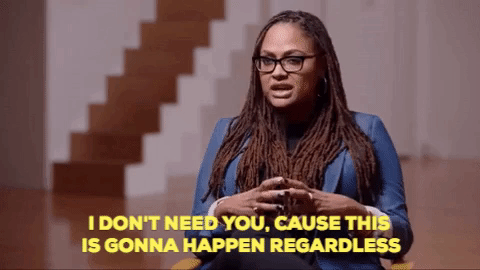
In the last 3 weeks, millions of people (a 4,665% increase from the prior 3 weeks) have sought out and watched Ava DuVernay’s incredible documentary, 13th, on Netflix, in which she explores the interwoven issues of race, the justice system and mass incarceration.
At the same time, ‘Dear White People’ and another Ava DuVernay masterpiece, ‘When They See Us’ are also seeing large viewership spikes of 329% and 147% from previous weeks.
People all around the world are turning to socially-relevant TV and film content amidst the ongoing Black Lives Matter protests in a bid to find understanding and education within these stories.
And it’s working.
Because whether it’s a work of fiction, a historical documentary or just an entertaining way of connecting the dots, these stories and their narratives have power.
Power to pull us in, power to put us in someone else’s shoes, power to encourage empathy, power to open our eyes, power to explore nuance, power to see humanity over and above stereotypes and ultimately, the power to change our world view.
But for too long, that power has been firmly placed in the hands of omnipotent studio executives, writers and producers who decide how to wield it in a way that dictates which stories we’re told and which stories we aren’t, which voices we hear and which remain silent, which narratives are held up as sacrosanct and which are silenced.
According to data sourced for a talk in 2019 by Robin DiAngelo, author of White Fragility, of the people who decide which TV shows we see, 93% are white. Of the people who decide which news is covered, 85% are white. And of the people who decide what music is produced, 95% are white.
This is a problem. And it’s one that’s so insidious, we often don’t even notice it.
As an example; in 2019, polls found that the police were one of the most trusted public institutions in America, more trustworthy than Congress or journalists or religious leaders, despite their undeniable history of racism, violence and most recently, of firing rubber bullets into crowds and attacking protestors with tear gas.
And that’s because, despite their questionable and often abhorrent behaviour in the real world, the ‘heroic police officer’ is one of our culture’s default protagonists, our screens have been filled with them for decades - the cop who comes to the rescue, the cop who prevails against the odds, the cop who’s always the good guy, the cop who never gives up on justice.
Law & Order, Blue Bloods, The Wire, Brooklyn Nine-Nine, Bad Boys, Cops, End Of Watch, Criminal Minds.
We swallow this stuff whole, it pervades our cultural understanding, yet we never stop to think critically about what we’re seeing and how it shapes our opinions and beliefs.
Stories. Narratives. The ones we’re told, over and over and over, are the ones we absorb until they become our dominant understanding.
And these stories don’t just influence our trust in the police, they also dictate the way we see the world and ourselves; they define how we classify beauty, success, relationships, intelligence. They reinforce stereotypes, teach us how to ‘get ahead’, tell us that some people are just better/smarter/more deserving than others. And that some people are lesser/unworthy/destined to amount to nothing (you can guess the predominate stereotypes for each)
Enough.
It’s time for us to wake up and to see that stories matter.
It’s time to demand that a wider range of them must come to the fore.
That the dominant voices must make room for everybody else’s.
That the narratives must shift from narrow to nuanced.
And that productions must remove their restrictive lens on pure profit and trust that powerful and purposeful stories can and will be met with open arms and open wallets by viewers the world over.
This rallying cry is important and luckily, some have already heeded the call.
Because although the Hollywood elite have been asleep at the wheel on this one, celebrities themselves have not. In the last few years, many of them who have been pushing for change have given up on begging for attention and investment from the big-wigs and have instead leapfrogged them entirely, setting up their own production companies to advocate and accelerate the development and dissemination of these stories.
Each one is obviously out to make money, but what stands them apart is their unshakeable focus on mission-first movies and TV shows, a determined and dogged effort to introduce new cultural narratives as a challenge to the predominant ones we’ve been fed for so long.
So let’s take a look at the seismic shifts quietly upending the Hollywood strangle-hold.
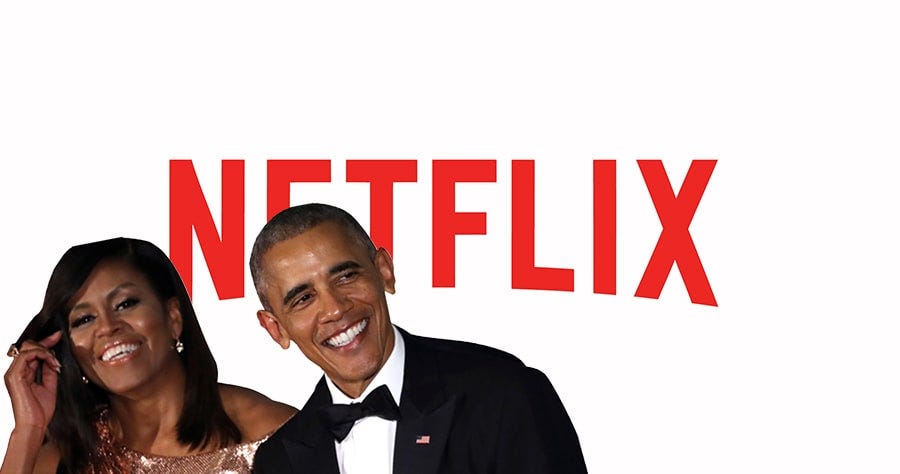
Barack and Michelle Obama / Higher Ground Productions
“One of the simple joys of our time in public service was getting to meet so many fascinating people and helping them share their experiences with a wider audience. [Through Higher Ground] we hope to cultivate and curate the talented, inspiring, creative voices who are able to promote greater empathy and understanding between peoples, and help them share their stories.”
Did you expect anything less than benevolence and noble intentions from the Obama’s? Of course not, for them, social consciousness and minority representation are top of the agenda.
Both Netflix and Spotify have signed exclusive deals with Higher Ground to produce a slate of TV/film content and audio content respectively, covering a variety of issues including race, class, democracy, civil rights and more.
Their first project with Netflix was ‘American Factory’, a feature documentary acquired at the 2019 Sundance Film Festival. It tells the story of what happened when a Chinese billionaire opened a new factory in an abandoned General Motors plant and hired two thousand American workers, things go far from smoothly as high-tech China clashes with working-class America and the doc follows their trials and tribulations as they work out a way to co-exist.
Shortly afterwards came ‘Crip Camp’, taking viewers to the US in the early 1970s, to a summer camp for disabled teenagers that would transform young lives, and the country by helping to set in motion the disability rights movement.
And coming up, are a plethora of inspirational and ambitious projects.
A feature film adaptation of David W. Blight’s 2018 bestseller ‘Prophet of Freedom’, for which he won the 2019 Pulitzer Prize in History, focusing on the biography of escaped slave, abolitionist, orator and statesman Frederick Douglass.
A scripted anthology series adapted from The New York Times’, ‘Overlooked’, an ongoing obituary column that highlights the lives of remarkable people whose deaths were not reported by the newspaper.
Bloom is billed as an upstairs/downstairs drama series set in the world of fashion in post-WWII New York City that depicts barriers faced by women and by people of colour.
And an as yet unknown slate of audio content coming via their recent Spotify deal.
Expect to see them churning out exceptional stories over the next few years.
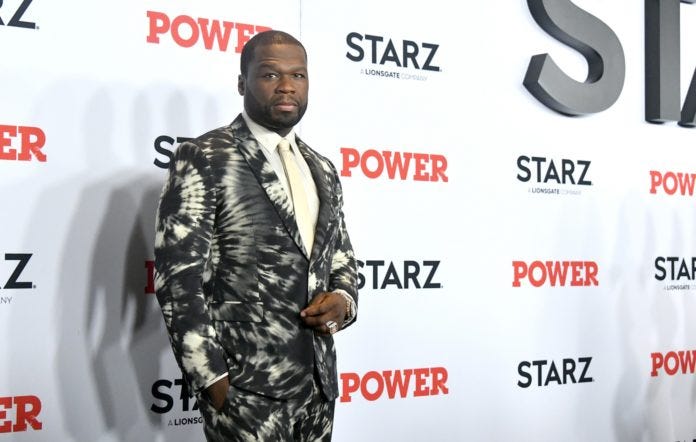
50 Cent / G Unit Productions
Back in 2010, 50 Cent (aka Curtis Jackson) re-started his foray into TV and Film with G Unit Productions and in the space of 18 months, he’d sold projects to six different networks. Among them was Power, a Starz drama for which Jackson served as a co‐star, co-creator, and executive producer. It aired in 2014 and has gone on to be one of Starz's most highly rated shows and one of the most watched on cable.
The series came to an end earlier this year with its sixth and final season and he was named the 2020 recipient of the NAACP Image Awards Outstanding Directing in a Drama series for his behind-the-scenes work on the show.
But 50 is just getting started.
Leveraging his new-found production credibility, he’s about to turbo-charge his TV and film empire with not one, but ten new projects; each one putting Black characters front and centre across a range of stories, from pure entertainment to the socially-resonant.
First off, the Power universe, though the main series is done and dusted, will be spawning four spin-off shows; Power Book II: Ghost, Power Book III: Raising Kanan, Power Book IV: Influence and Power Book V: Force. He’s also lined up new talent for the spin-offs including Mary J. Blige and Method Man.
Another new show based on a true story is ‘For Life’, featuring British actor Nicholas Pinnock as Aaron Wallace, who falls victim to an unjust court system, he builds up his own legal defense and litigates cases for other inmates in hopes of finding his own freedom.
Then there’s ‘Black Mafia’, inspired by another true story, it’s set to follow brothers Demetrius 'Big Meech' and Terry 'Southwest T' Flenory, as they establish "one of the most influential crime families" in the late 1980s, centering on how they moved from drug-trading to hip-hop in their rise "from the decaying streets of southwest Detroit".
‘Tomorrow, Today’ will focus on the journey of a war veteran, who hails from Chicago’s South Side and was subjected to freak experiments that were supposed to make him superhuman.
And animated series, ‘Trill League’, the brainchild of Anthony Piper—a self-taught illustrator and comic fan from Chicago—brings to life reimagined versions of superheroes and has been described as “a hilarious parody combining the world of superheroes, anime and hip-hop culture.” and will focus on “social injustice, internet trolls and a league of black superheroes, tasked with saving the world from monsters, super villains and haters of all kinds.”
As a production polymath, this is just the tip of the iceberg for 50.
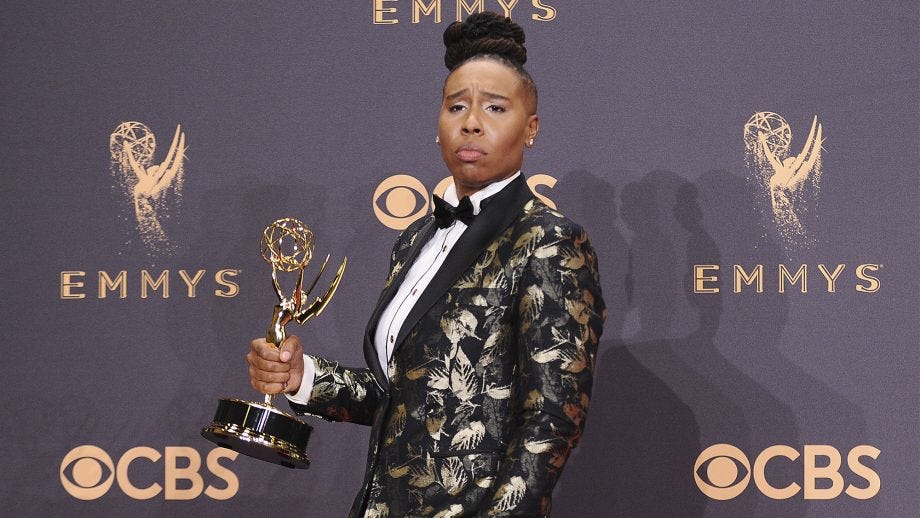
Lena Waithe / Hillman Grad Productions
Waithe first found her feet as a writer across a variety of shows and then as a producer on Netflix’s ‘Dear White People’.
But her big break came in the shape of Netflix series, ‘Master of None’ alongside Aziz Ansari, where she played a heightened version of herself - a confident, queer Black woman, of critical importance to her given the lack of representation on our screens of these important role models. For her writing and her portrayal, she won an Emmy in 2017.
In 2018 her series, ‘The Chi’, produced by Common aired on Showtime to strong reviews, especially given the more nuanced portrait she painstakingly painted of her hometown in which the series is set, carefully deconstructing the broad brush strokes and stereotypes it’d been famous for.
When setting up her own production company, Hillman Grad, she made a commitment to “creating art that goes against the status quo and which gives a platform to marginalised storytellers,” cementing her promise to herself and to others that representation and new types of stories would be prioritised above all else.
She’s since gone on to write and produce the incredible ‘Queen And Slim’, which received rave reviews, a new series called Boomerang on BET, based on the iconic ’90s romantic comedy starring Eddie Murphy and Halle Berry and coming up, she has a few exciting irons in the fire.
‘Twenties’, will also air on BET; a comedy series that’s semi-autobiographical and follows "a queer black girl, Hattie, and her two straight best friends.
‘How to make love to a Black woman’ will be arriving on Showtime, a comedy anthology and ‘Them’ a horror anthology for Amazon, the first episode, set in 1953, centres on a Black couple who decide to move their family from North Carolina to an all-white Los Angeles neighbourhood only for their seemingly idyllic street to become ground zero for malevolent forces both real and supernatural who threaten to taunt, ravage and destroy them (sounds amazing)
There’s no doubt that Waithe is an abundant powerhouse of creativity and based on her unwavering goal to shine a light upon previously maligned and misunderstood communities, you can be sure that we ain’t seen nothing yet.
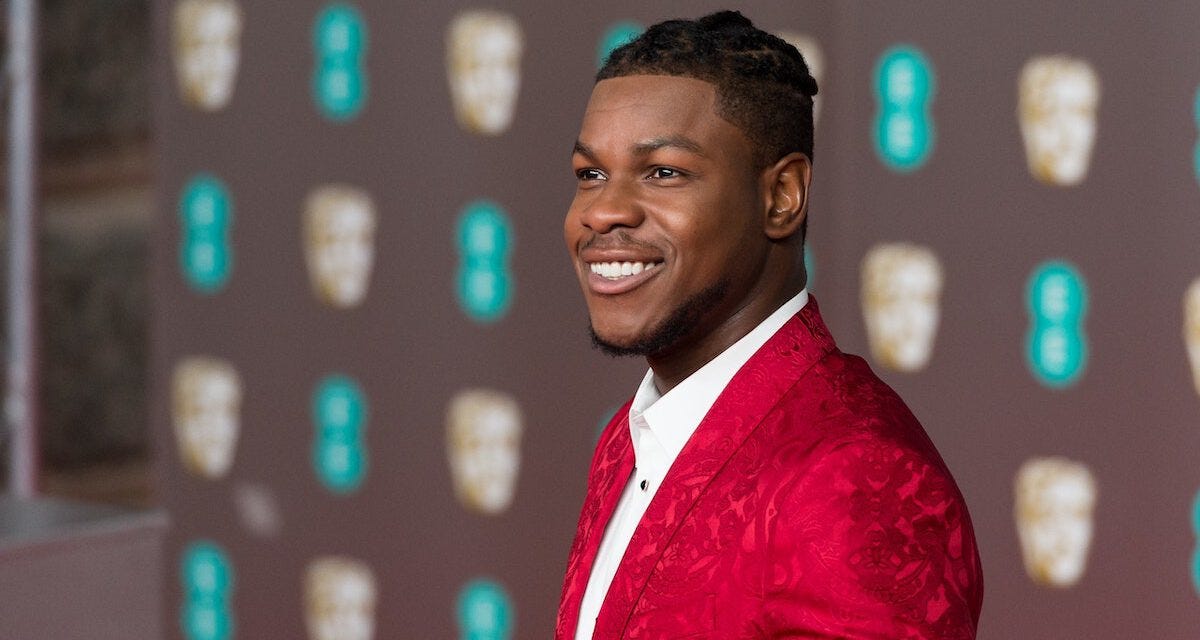
John Boyega / UpperRoom Productions
As the first Black stormtrooper to feature in a Star Wars film back in 2014 in ‘Episode VII’: The Force Awakens’, John Boyega experienced first hand the incredible power of dominant cultural narratives when a racist group of fans demanded his removal from the project or else their boycott of the movie. It was an example of how the previous narrative had been so severely narrowed in its depictions of stormtroopers as White, that a certain set of fans had been convinced of its incontrovertible truth.
Despite their protestations, ‘Star Wars Episode VII’ went on to break various box office records and became (unadjusted for inflation) the highest-grossing instalment in the franchise, the highest-grossing film in North America and the highest-grossing film of 2015 with over $2 billion in the bank and a net profit of over $780 million.
Since then, Boyega has been a champion of representation on the Hollywood stage and has spoken out about the importance of more diverse storytelling by bringing new types of narratives to the Western world.
Earlier this year, he inked a deal with Netflix via his UpperRoom Productions company to develop non-English language films focusing on west and east Africa, with a focus on cast, characters, crew, literary properties, mythology, screenplays and/or other elements sourced from these African countries - a space that has been criminally untapped and promises rich and wide-ranging storytelling.
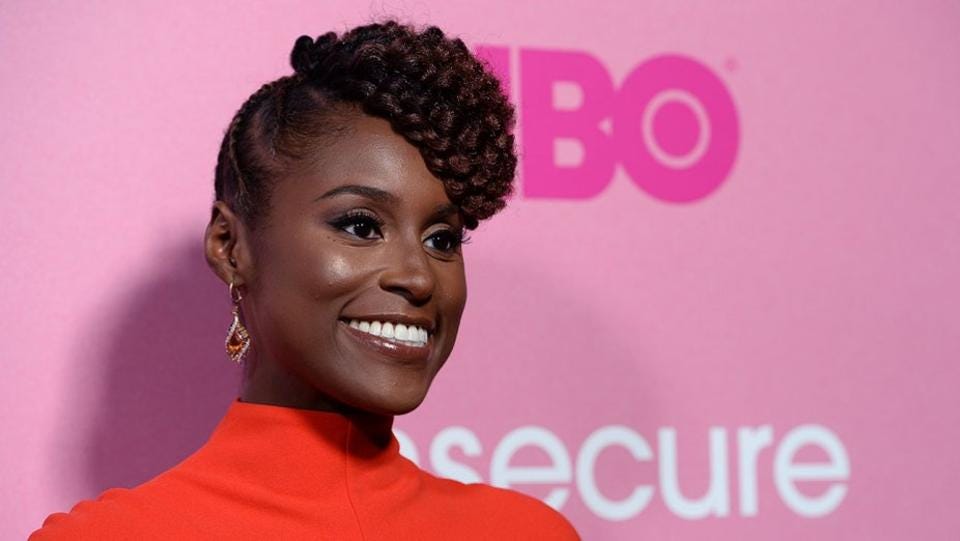
Issa Rae / Issa Rae Productions
Best known as the star of Peabody Award winner, Insecure, in which she plays a woman struggling to manage her professional and personal lives in LA, Issa Rae is a multi-hyphenate talent of the highest order.
She first found fame through her Youtube series, Awkward Black Girl, a comedy that premiered back in 2011, following the life of J as she interacts with co-workers and love interests who place her in uncomfortable situations.
Through that success, she continued to cultivate her Youtube content with short films and web series, whilst also giving her platform over to other Black creators to share their voices and their stories.
When Insecure premiered on HBO in 2016, Rae was catapulted into the world of big-budget entertainment, leading her to set up Issa Rae Productions to capitalise on her new found connections and fame, with the tagline - ‘bringing you quality content of color.’
Since then, Insecure has gone from strength to strength and has just been renewed for a fifth season and Rae is also in the midst of creating new series, such as ‘A Black Lady Sketch Show’ for HBO, which stars and is exec produced by Robin Thede, premium cable miniseries, ‘The Dolls’, starring Rae and Laura Dern, which is inspired by the 1983 Christmas riots, sparked by the demand for Cabbage Patch Dolls in two Arkansas towns, and as if that’s not enough, she’s also just launched Raedio, described as a “five-vertical” audio content company comprising publishing, live events, music supervision, a music library and a label that’s a joint venture with Atlantic Records.
Passionate about telling Black stories and examining "the complexities of 'Blackness'", Issa is determined to source, share and give a stage to talent that represents the faces and facets we simply don’t see enough of.
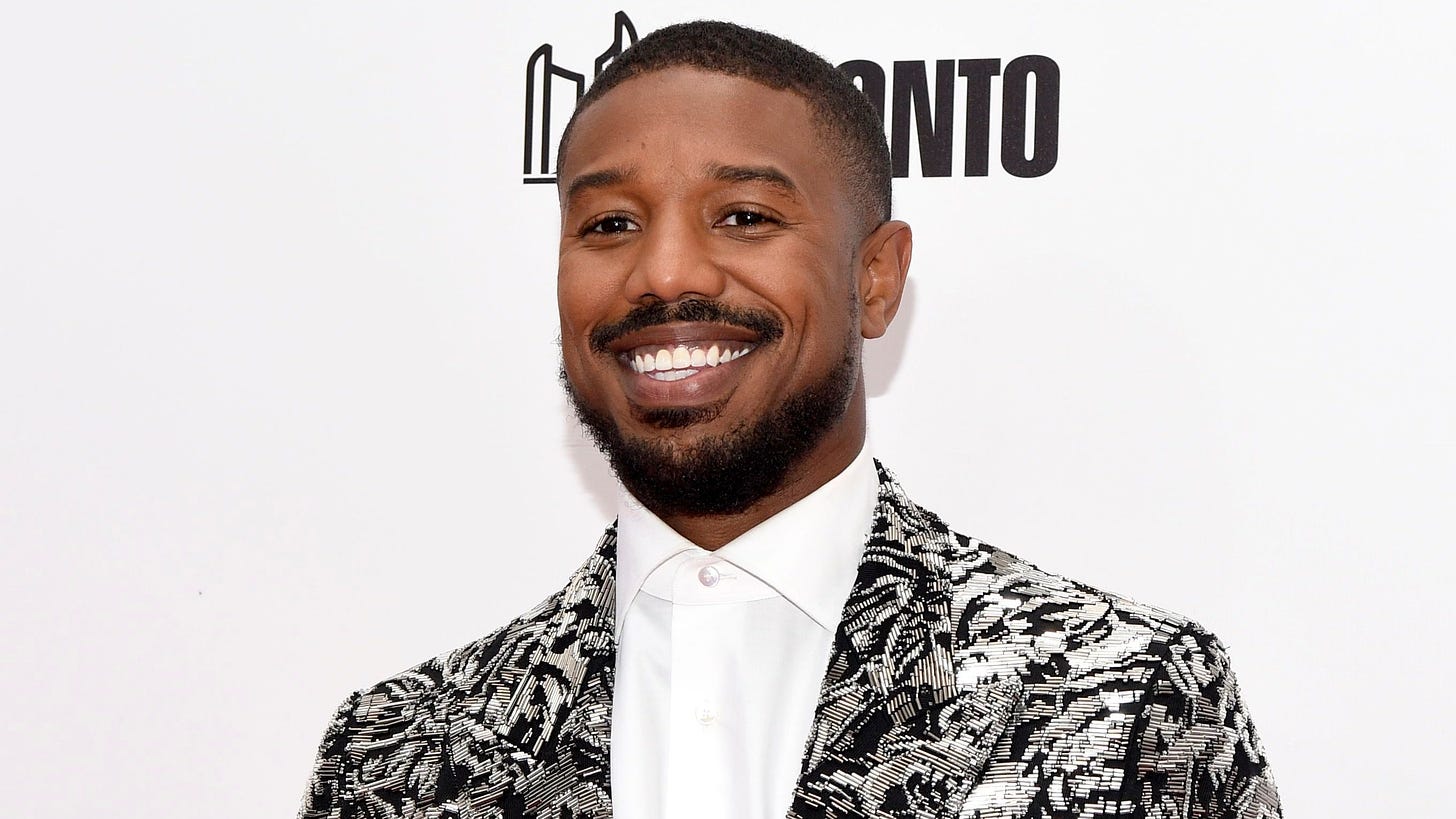
Michael B Jordan / Outlier Society
In a 2019 Produced By session entitled ‘Content With a Conscience: Social Impact Entertainment Across All Platforms’, Michael B Jordan talked about the representation of Black stories and Black character nuance saying, “It’s natural for me. Long before the word inclusion became a thing.”
Through Outlier Society, Jordan aims to push two complementary agendas; to showcase more Black talent in big blockbuster films and to tell more Black-centric, socially-driven stories.
This is evident within his existing slate, from Raising Dion, the sci-fi family series on Netflix, to the legal drama, Just Mercy. But also in his upcoming slate too, featuring both an original monster movie shot in Detroit, alongside Jordan’s directorial debut, an adaptation of ‘The Stars Beneath Our Feet’, the story of a boy trying to steer a safe path through the projects in Harlem in the wake of his brother’s death.
Outlier Society was also one of the first production companies to announce that it would be adopting inclusion riders, or contract addendums that require studios to hire a diverse crew and/or cast on a particular project, with Just Mercy being the first of their films to fall under this new agreement.
And recently, they’ve launched the Outlier Society Fellowship Program in partnership with the My Brother’s Keeper Alliance, designed to provide paid internships and mentorship for young people in the LA area who are interested in media, arts, marketing, film/TV production or branded entertainment.
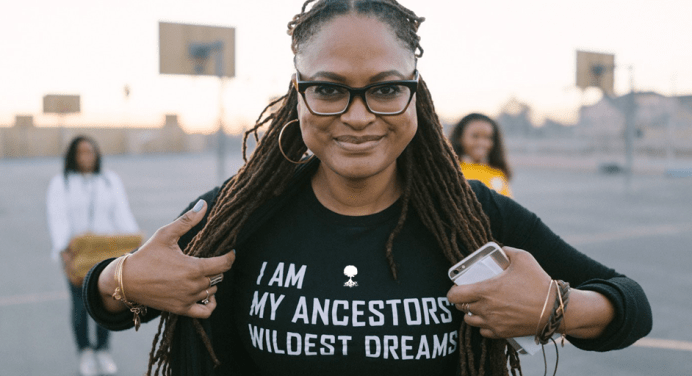
Ava DuVernay / ARRAY
Prolific creator/producer/director/activist, Ava DuVernay, is responsible for some of the most powerful depictions of Black stories on our screens today; from ‘13th’, to ‘When They See Us, ‘Selma’, anthology series ‘Cherish The Day’ and the recent Nipsey Hussle documentary as well as an upcoming big-budget and big-screen version of Jack Kirby’s New Gods, based on the comic book series of the same name and a TV adaptation of Octavia E. Butler’s 1987 sci-fi novel Dawn, which tells the story of a Black woman who works with aliens to resurrect the human race 250 years after a nuclear war.
But that’s not all she’s been up to recently.
After audiences watch her projects, the most common question DuVernay gets asked is "what do I do now?". So last month, she launched an online education initiative entitled ARRAY 101 to provide learning guides for her company’s film and television series. The first guide released accompanies her Emmy-nominated Netflix series ‘When They See Us’; it includes an interactive section, featuring eight project-based, field study lessons that invite students to create news stories around the Exonerated Five case using public data analysis.
In addition, she’s launched LEAP - the Law Enforcement Accountability Project.
The initiative will fund 25 short-term ventures, including film, theatre, music and literature over the next two years through Array Alliance, DuVernay’s nonprofit for diversity in film, with the aim to “disrupt the code of silence that exists around police aggression and misconduct.”
An important component of the filmmaker's project is being able to garner a new perspective when it comes to police killings; the story is often told from "the view of police," says DuVernay, but LEAP aims to expose the other side by lending a voice to those who typically go unheard.
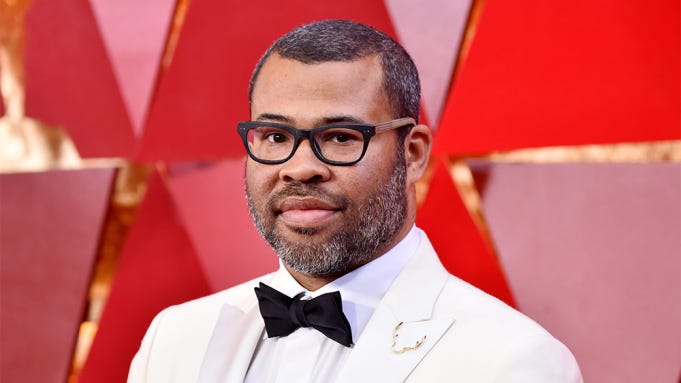
Jordan Peele / Monkeypaw Productions
Halfway through the making of ‘Get Out’, Jordan Peele found his groove and realised what story he wanted to tell: A horror-thriller for Black audiences that delivered a “searing satirical critique of systemic racism”.
Made for under $5 million, the film went on to gross more than $255M worldwide and received four Oscar nominations including Best Picture and Director, with Peele winning for his original screenplay.
Not long after, his second film ‘Us’, a gory psychological horror, took a different twist by lining up a predominantly Black cast, but without any commentary on race at all and without it influencing the story, normalising it as a way of drawing attention to it. The movie opened to $71.1M, the highest-grossing opening ever for an original horror film and the highest-grossing opening for a live-action original since 2009’s Avatar.
This is Peele’s magic - yes, his ability to bend genres and to create new world’s, but more so his deft touch in unpacking contemporary social issues, to champion highly specific perspectives and artistic collaborations with unique and often underrepresented voices.
In 2018, Peele’s Monkeypaw Productions hired cultural activist, Kamil Oshundar, in a unique role not seen often in Hollywood circles, she became their ‘cultural executive’ - with her background in academic and cultural research, her role as a queer community organizer, author, artist and activist - her work has and will continue to be woven into storylines and character development.
Part of her work will also involve diving deep into the genre material in the hopes of producing “critically conscious media” that better represents marginalized groups. She’s previously developed research on ‘art for revolution’ by Black women of the Black Panther Party and Black speculative arts with a focus on Black horror and the mobilisation of fear, fantasy and futurism within the genre to explore the material realities of oppression and resistance for Black women.
With new projects on the horizon such as ‘Lovecraft County’, a remake of the classic horror ‘Candyman’, animation ‘Wendell And Wild’ and many more - we can be sure that Peele, Monkeypaw and Oshundar will continue to push the boundaries of representation, unique storytelling and new perspectives.
These are just some examples of a turning of the tide, it’s not enough, but it’s a great start.
The critical point is that in order to create stories that are diverse, multidimensional, non-stereotypical and which shine a much-needed light on under-represented voices, we have to both change the ownership of the narrative and ensure that the new ones are being driven by a clear and compelling mission to bring about a different lens and more purposeful portrayals .
If wielded correctly, these stories can result in the creation of radical empathy, they can open our minds, broaden our horizons and be powerful catalysts for action.
So let’s be more selective about what we see on our screens, whilst being more deliberate in our engagement with entertainment that pushes us all forward.
NB - This is part one of a two part series on ‘changing cultural narratives’. Part two will focus on how brands can start to play a role in broadening our cultural understanding and how they can pass the mic to the sidelined and silenced, helping to open up a richer and more diverse world of stories for us all.



